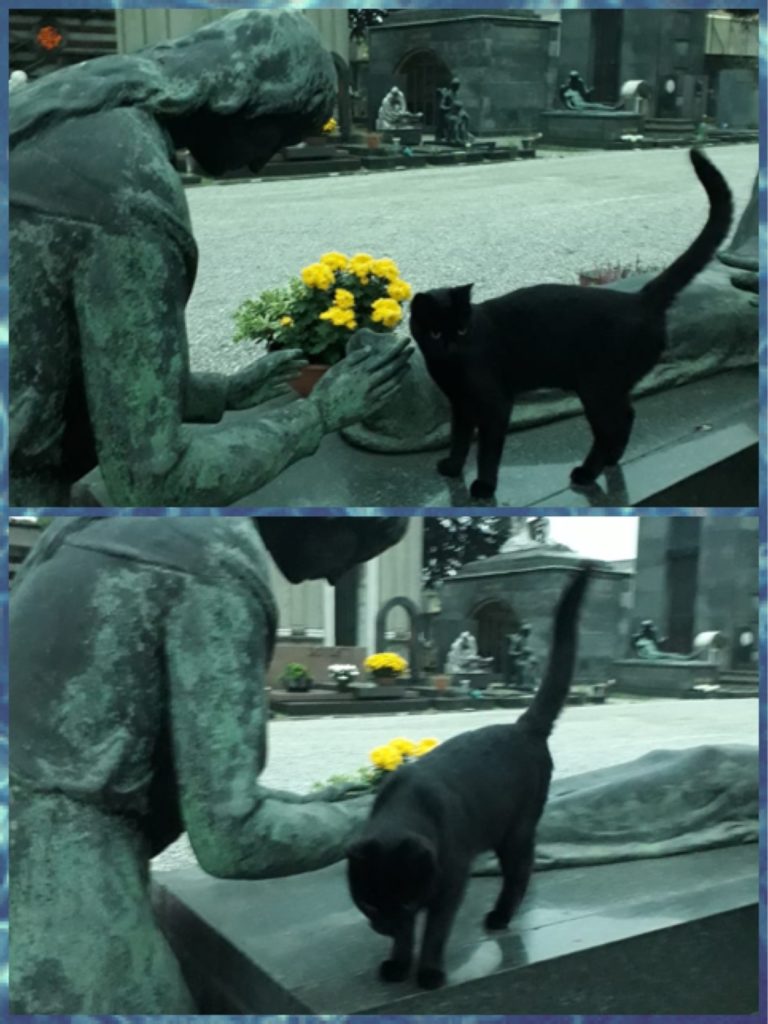Santiago, 16/11/2019
Dear D, it seems that the Santiago terraforming project that I invited you in my last email (oh, what a damn clairvoyant I am), now finds a national and urgent character.
I don’t know very well what to tell you. I’ve read something here, I’ve done something little there, but I’ve been dozy, in a state of WTF, mostly. This last month is, without a doubt, the strangest life I’ve ever lived. With my friends here, we call it “the post-Chile.” The post-Chile is like walking on quicksand with an astronaut suit and goggles, finding in each corner the ghosts of people killed, raped, tortured, and mutilated by the State. Weird things happen. Singers on the subway singing Simply Red while people look at each other simulating laughter and terror, pubs’ terraces full of people drinking beer while at 10 meters the zorrillo is tearing gas and, late at night, the city turns green among helicopters flying low, protesters playing with laser lights and the ninja turtles operating, alienated by cocaine.
It’s bizarre. In an hour, I’m not exaggerating, I can go from depression, fear, and misery, to tranquility, euphoria, and optimism. And then I wonder: if this seems to be real life, if this is the new normal, what was all before this?
Complexity is such that the person who tries to put order and understand what happens is stupid or is a gambler who wants to win the game with false certainties. Or, perhaps, both.
And guess who has simulated offering solutions ignoring not only complexity but above all POLITICS. The smart tech guys! Surely you’ve heard of Chilecracia (which in the first days of the social outburst had great coverage in the hegemonic media). It was created by a former MIT Media Lab boy. The logic behind Chilecracia is “smart”: given the complexity of the social demands that exploded in these days, nothing better than ranking them according to questions with predetermined options that”people” answered on the internet. And voila, politicians will have in their computer the will of people in a hygienic spreadsheet. Of course, they have won a lot of criticisms, and the creator got angry because, hey, the important thing here is to have good intentions.
Isn’t there a proverb that says something like “the road to hell is paved with good intentions”? Bah, but what tech guys from elite universities could know about it if they have less street experience than Venice. It’s clear to me that if there is something technology and climate crisis have in common with the social outburst in Chile, it is that at the core, there is a problem of elitization.
That is, at least, what I can interpret living amid the post-Chile confusion and reading a recent Donna Haraway’sinterview. There she destroys these techno-hippyish gurus like Stewart Brand, who, by the way, has doubtful “solutions” to the climate crisis and, moreover, is the creator of The Whole Earth Catalog, which for many people isthe ideological foundation of Silicon Valley’s techno-libertarianism. For Haraway, people like Brand are part of the climatic problem rather than an exit. This is because I would say three facts: one, their narcissistic and elitist individualism prevent them from working in diverse groups. Two, their inability to understand that death and loss are real and, therefore, three: their failure to accept that their somewhat childish yearning to fix what it’s broken cannot be achieved (Haraway compares them to Peter Pan, haha)
Is democracy broken? Let’s fix it! Is the climate broken? Let’s fix it! We, the kings of innovation, the masters of big data, the rulers of the world as it is known today, will fix everything. Just, please, don’t criticize us: this is about scientific knowledge, not political.
I have read many articles that problematize the technology industry in the climate crisis. For example, on how Googlefinances climate change deniers, how carbon footprint produced by the Internet and Artificial Intelligence systems are hurting climate, or how AI should not beused to harm and exclude climate refugees. And ok, I understand that they are significant problems. But since the post-Chile has gotten fed up with elites and their good intentions, I keep asking myself: how are we going to pull the brake on a climate crisis if it is still an elite-dominated discussion? (In this regard, it’s fascinating to see this interview with Maisa Rojas, COP25 Scientific Coordinator, the day the COP25 in Santiago was canceled, and where she reflects -thinking in the post-Chile- on how representation and participation are crucial even more than the scientific consensus). Or, more directly, can we find a way out of the climate crisis without a violent rebellion against the elite that includes, no more no less, a rebellion against new technologies dominated by elites?
Oh, Danae, if this seems to be real life, if this is the new normal, what were we thinking before?
I’m very sorry to have suspended my trip and not seeing you 🙁 Come here to terraform with me this zero zone, where thefounding technology is feminism and its ethics of care, the regeneration ofnature and social justice. And, just imagine, what if Neoliberalism finally dies in Chile in the hands of girls and teenagers? You-don’t-want-to-miss-that.
I’m sending you a gata fiera from yesterday’s demonstration.
<3
p.

Amiga Paz,
A month ago I felt my life was in order. Yo vivía tan distinto, algo hermoso, algo divino, lleno de felicidad.
Until this winter came.
I completely understand the emotional highs and lows you describe, i’m also full of feelings that I cannot even understand very well. I’ve been through days that have been intense, beautiful, sad, important, heterotopic. My mind is lost in the social revolt and my poisoned heart has to fight with nostalgia and with my seasonal affective disorder.
My friend Camilo reported from Santiago: “Danae, with the state of emergency here in Chile, global warming has been postponed”, and well, I had to think about that idea: is it possible to worry about the climate emergency when your country is on fire and the police is killing and mutilating people in the streets, just because they are demanding a decent life?
Anyway, I was able to connect both issues at a meeting I had in London, I had to speak at this conference you couldn’t attend and some people organized an emergency session in solidarity with Chile and Lebanon. I had to explain the situation in Chile, and I have to admit, I was very upset, very emotional, very angry at the news I was checking and at the technosolutionism that was around me (can you believe that a dude proposed some browser extension as a solution!). So in a moment, being very cuática as usual, I said:
You white people should exercise international solidarity right now, because sooner rather than later your houses will flood and you’ll be the ones in need for help!
Hahah now I feel I little embarrassed about that scene, but at that moment I was carrying a revelation, and today I believe that the social revolt in Chile is a rehearsal for the upcoming climate emergency: an entire nation demanding what is basic, a few trying to protect their privileges no matter the cost. For this reason I believe that we have to look at these social movements with attention so we can acknowledge the possibilities of the political power of a society when facing the big crises. Crises that are already here, with images such as those of flooded stores in Venice with their luxury goods floating in the water, because the super tech fix that elites planned didn’t work.
In this same conference in London, I met people from Extinction Rebellion, the global platform fighting the climate emergency, I was very interested on something they said about their approach to leadership. They told me that they used a multi-leadership structure, that is, individuals who represent specific communities but with sufficient legitimacy to be considered valid voices in binding instances.
It is a structure that supports the idea of self-organization, you don’t need to go through traditional bureaucracy to be part of Extinction Rebellion. Only refer to their protocols of distributed authority and radical transparency. It is an idea in coherence with the vision of a decentralized internet, an internet we need so much right now: a free and open network in which the power of mass surveillance and information control is not in the hands of a few. With a decentralized internet, land defenders would be at a lower risk of being profiled, monitored and threatened. Just as it happens with, oh surprise, the activists and social leaders from Chile.
During my trip, I also bought Greta Thunberg’s book ‘No One Is too Small to Make a Difference’. I really liked a part in which she explains that because of her having Asperger she sees everything in black and white, then she cannot deal with reasonings such as “wow, climate is such a complex issue” or “to solve this we have to create a committee”. Thunberg considers that there’s no space to discuss what is evident: scientific consensus. Therefore, it is extremely strange and absurd that she has to keep saying obvious statements such as the urgent need to stop carbon dioxide emissions.
Have you had that feeling? Have you felt like saying why the chucha you’re not doing what you have to do? The answer is in front of your face!
Maybe that’s the question we have to ask ourselves at post-Chile? On this trip I started talking about ‘Chile-2’. More like Evangelion you know? Because a central element of this post-planetary scenario is its transculturality and its posthumanist sense: the Chilean devotion to Japanese animation, that masterpiece called ‘Piñera Culiao’ created by our Haitian brothers, the people protesting in Hong Kong proudly embodying the figure of the tormented Shinji Ikari, the necromancers invoking our beloved copkiller dog Negro Matapacos around a magic fire, my own fire sign that has no nation but is full of love, determination and rage that defies borders.
I wanted to show you this adorable cat we met with the adorable Pondie at the cemetery in Milan a few days ago, he was so friendly but at some point he left us and went to self-cuddle to that grave in the photo using the hand of that sculpture. Definitely one of the best technological legacies I’ve seen, ideal for a future without humans, the perfect technology to say
Beautiful gatito, I’ll be here for you until the end of the world <3

Mucho aguante amiga, i know we’ll see each other soon x
Danae